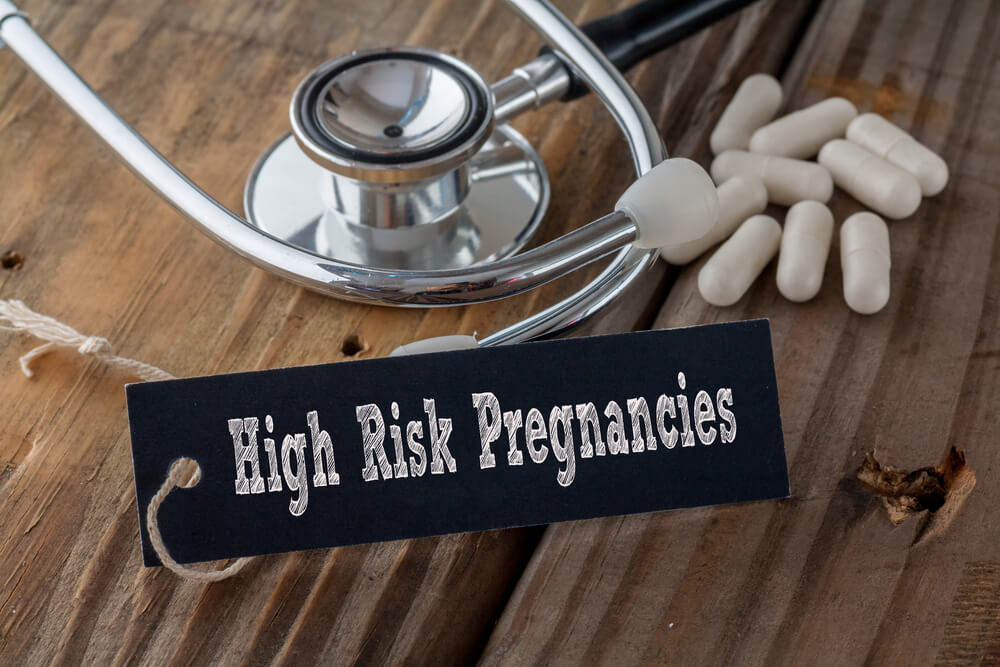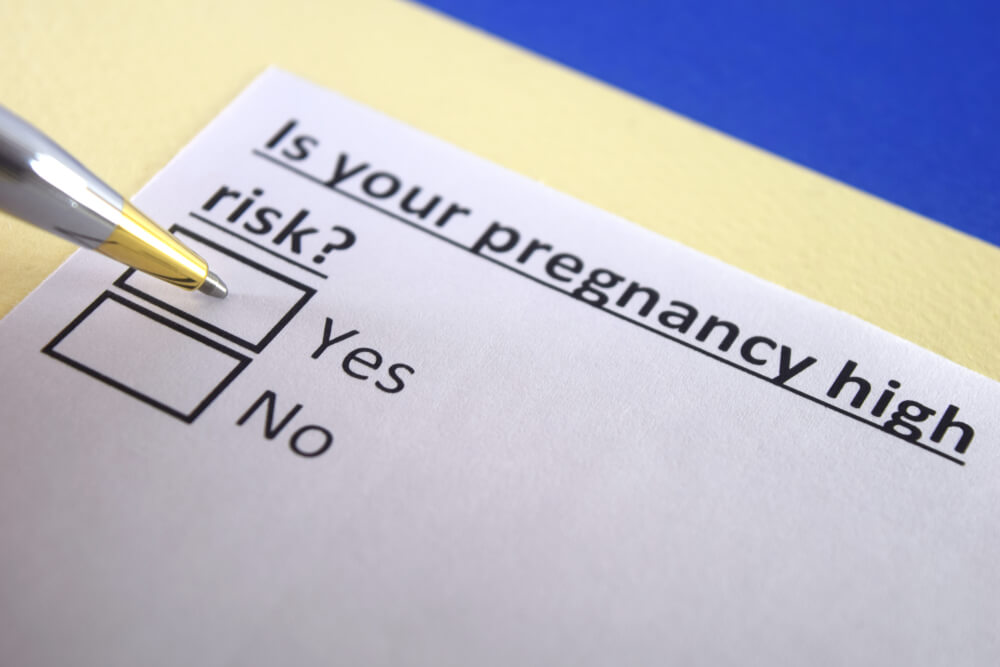No matter if it’s your first, second, or third pregnancy, going to your OB/GYN and learning that your pregnancy is considered high risk is not easy. A high-risk pregnancy is an expression most gynecologists and obstetricians use for a variety of conditions women are diagnosed with during pregnancy. In some cases, some conditions are there before you get pregnant, some develop during pregnancy, and others after delivery. If you’re one of those carrying a high-risk pregnancy, referring to a high-risk pregnancy specialist is simply a must if you are to save your health and your baby’s health. You should also make sure to ask all relevant questions and be up-to-date with your condition and treatment. Here are some of the most important things to know about a high-risk pregnancy.
What Is a High-Risk Pregnancy?
Being considered a high-risk during pregnancy can be related to numerous health conditions. Sometimes a high-risk pregnancy is a result of a pre-pregnancy medical condition, but sometimes women develop certain issues during pregnancy. Usually, multiple pregnancies are also considered risky, so they should be controlled as well. Regardless of the case, a high-risk pregnancy case has to be monitored closely with adequate care and treatment. It’s important to have a team of experts by your side and have a high-risk pregnancy OB/GYN to lead you through everything until you deliver your baby safely. At Women’s Care of Bradenton, we devote ourselves to providing all our patients with exceptional care and treatment. Being experts in the relevant medical fields, we will provide the necessary support, care, and treatment before, during, and after your pregnancy. Contact us today so we can make a detailed plan and ensure your and your baby’s well-being. 
High-Risk Pregnancy Risk Factors
When it comes to high-risk pregnancies, there are a few risk factors that should be taken into consideration when dealing with a high-risk pregnancy. Some of the most common risk factors to contribute to high-risk pregnancies include the following:
- Mother’s age – High-risk pregnancy age is one of the first relevant factors. If the mother is older than 35, she is more likely to have a high-risk pregnancy.
- Specific lifestyle – Certain lifestyle choices such as smoking, drinking alcohol, and using drugs can bring about a number of health-related problems for both the mother and the baby.
- Mother’s health condition before pregnancy – If the mother is diagnosed with diabetes, high blood pressure, obesity, epilepsy, thyroid, blood, and heart disorders before getting pregnant, she will probably be considered a high-risk pregnancy case.
- Health complications developed during pregnancy – If the mother develops certain health conditions during pregnancy, she will be considered high-risk and will be monitored closely to ensure her and the baby’s safety. Some of the things that can happen during pregnancy include an abnormal placenta position, Rh sensitization, and fetal growth restriction. Thanks to special high-risk pregnancy tests, your doctor can easily determine the cause of the problem and provide appropriate therapy.
- Pregnancy history and genetics – if you have been diagnosed with conditions such as preeclampsia or you had a premature delivery with your previous pregnancy, you will be considered a high-risk pregnancy with your next pregnancy. Also, women in whose families there are cases of certain genetic disorders are also considered high-risk and should undergo specific tests to ensure their baby’s health.
- Multiple pregnancies – Women who are carrying twins, triplets, or more babies are always put on the high-risk pregnancy list.
Finally, if you at any point notice something unusual or abnormal such as vaginal bleeding, severe headaches, vomiting, high fever, pain, and cramping, or decreased fetal activity, don’t wait long before contacting your OB/GYN.
What Tests Are Done During a High-Risk Pregnancy?
Once you find a good high-risk OB/GYN to take care of you and your baby, you should feel free to ask them everything you need to know. Being informed and prepared for what awaits you is the best way to remain calm and do the best you can to protect yourself and your baby. There are a few different high-risk pregnancy tests that can be done to determine what the problem is and enable easier and more adequate care and treatment.
Some of the recommended tests and screenings include:
- High-risk pregnancy ultrasound – With the help of ultrasounds, doctors are more able to determine abnormalities in fetal development and can provide immediate treatment options. If your OB/GYN is suspecting that something might be wrong with the fetus, they will recommend further tests to rule out serious health complications.
- Cervical length ultrasound – Your doctor can use an ultrasound to measure your cervical length to ensure you’re not at risk of premature labor.
- Invasive genetic screening – If you’re a high-risk pregnancy, your doctor may recommend doing chorionic villus sampling (CVS) or amniocentesis to be sure everything’s okay with the fetus. For CVS, a sample of cells is taken from the placenta between the 10th and 12th weeks of pregnancy. This can discover certain genetic abnormalities if there are any. With amniocentesis, the doctor will take a sample of the amniotic fluid after the 15th week of pregnancy and screen it for neural tube defects and other genetic disorders. Make sure to have your OB/GYN explain the procedures thoroughly before you decide this is the best option for you and your baby since they carry a small risk of miscarriage.
- Prenatal cell-free DNA screening – During this procedure, the doctor will take a sample from the mother’s and baby’s DNA and screen it for specific chromosome defects.
- Biophysical profile – For this, your doctor may perform an ultrasound just to check the development of your fetus and ensure everything is going smoothly. After evaluating the state of the fetus, they may recommend further testing and screenings.
- Lab tests – Blood and urine tests are used extensively because they can show if there’s something wrong with the mother or the baby. Urinary infections and STDs can be detected from a urine sample and dealt with accordingly.

What Can You Do to Have a Healthy Pregnancy?
No matter if you’re planning to become pregnant or you’re already pregnant, make sure to have a happy and healthy pregnancy. Talk to your high-risk pregnancy doctor about what steps to take to ensure your well-being, some of the things you can do to prevent a high-risk pregnancy include the following:
- Organize a preconception appointment
- If you still aren’t pregnant, it’s a good idea to consult an OB/GYN before conceiving. They will tell you everything you should know, evaluate your medical state, and ensure you’re on the right track. Doing all the tests and screenings and making sure you’re healthy before pregnancy can significantly reduce the risk of a high-risk pregnancy.
- Visit your OB/GYN regularly
- Once you’re pregnant, make sure to regularly visit your doctor. This is the only way to monitor the baby’s development and discover possible health issues on time.
- Lead a healthy life
- Finally, and probably the most important thing – make sure to have a healthy life. Eating healthily, taking your prenatal vitamins, drinking enough water, and avoiding smoking, alcohol, and stress can be of great value for you and your baby’s well being.
Having a high-risk pregnancy can go without serious health complications if you have a good team of experts by your side. Make sure to visit your OB/GYN regularly and follow the instructions they give you. This is the best way to deliver your baby healthy and ensure everything goes well. For more information, please visit our website at https://womenscareofbradenton.com/


